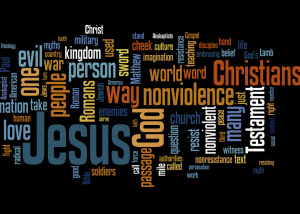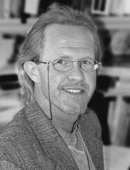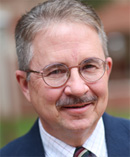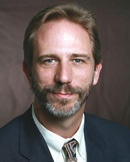Christians and violence: Seek peace and pursue it
Debates about gun violence stir strong emotions, and Christians hold varied views on what it means to “seek peace and pursue it,” as the psalmist wrote.
Some call for increased gun control, while others feel a responsibility to make sure armed citizens are trained properly and prepared to stop violent assaults.
 Some Christians believe love for neighbor demands readiness to protect innocent lives, and that may include using guns for protection.
Some Christians believe love for neighbor demands readiness to protect innocent lives, and that may include using guns for protection.
After the school shooting at Newtown, Conn., last December, a National Public Radio reporter asked Richard Land, then-president of Southern Baptists’ Ethics & Religious Liberty Commission, if the New Testament offers any justification for owning guns. Land responded by citing the Golden Rule and Jesus’ command to love one’s neighbor.
“If you see your neighbor being attacked, if you see your neighbor in danger, you have an obligation and a responsibility to do what you can to protect them,” he said.
Other Christians hold different opinions.
Following Jesus
 Terry Rosell“I have yet to see anyone successfully make a case, logically and without fallacy, for the use of weapons on the grounds of Jesus’ teaching,” said Terry Rosell, ethicist and professor of pastoral theology at Central Baptist Theological Seminary in Kansas City, Kan.
Terry Rosell“I have yet to see anyone successfully make a case, logically and without fallacy, for the use of weapons on the grounds of Jesus’ teaching,” said Terry Rosell, ethicist and professor of pastoral theology at Central Baptist Theological Seminary in Kansas City, Kan.
Jesus rejected self-defense and scolded Peter, his disciple, for drawing a sword in his defense, saying, “He who lives by the sword dies by the sword,” Rosell noted.
He recalled one seminary class that included doctoral students from a war-torn country. One student suggested perhaps Peter responded more appropriately than Jesus to the armed thugs who entered the Garden of Gethsemane to arrest an innocent man.
“I began singing, ‘I have decided to follow Peter.’ The class erupted into the laughter of awareness. … One thing we can do for peace is to point out the discrepancy between what we sing and what we do,” Rosell said.
“Another thing we can do is to recognize that following Jesus in the ways of strategic nonviolence is much easier from the safety of suburban Kansas City than it would be in the oppressive environment of a war-torn nation.”
Hard questions
 Roger OlsonChristians need to ask themselves hard questions, said Roger Olson, the Foy Valentine Professor of Christian Theology and Ethics at Baylor University’s Truett Theological Seminary in Waco.
Roger OlsonChristians need to ask themselves hard questions, said Roger Olson, the Foy Valentine Professor of Christian Theology and Ethics at Baylor University’s Truett Theological Seminary in Waco.
“Christians who are not pacifists and feel threatened by violent people ought to ask themselves how serious that threat is before buying a gun and carrying it in their car or on their person,” he said. “They need to realize that simply having a gun makes using it unnecessarily more likely.”
Christians have a responsibility to submit every ethical decision to Jesus Christ as Lord, said Kyle Childress, pastor of Austin Heights Baptist Church in Nacogdoches. And that makes life complicated, he emphasized.
“Decisions and perspectives that once seemed simple and direct might very well become difficult and challenging,” Childress said.
Protecting the innocent
“For example, if followers of Jesus do not advocate gun violence, what do we do in protecting the innocent? What if the call of Jesus is to be like Jesus in our willingness to give up our lives rather than kill? To cease from killing does not mean we no longer oppose evil, but it means that we oppose evil like Jesus, who died rather than kill. To be willing to put our lives on the line and not kill means that we trust God more than we trust the power of violence.”
 David GusheeChristians should explore what the Bible teaches about the authority of the state to maintain law and order, said David Gushee, Christian ethics professor at Mercer University and director of the Center for Theology and Public Life. The Apostle Paul teaches in Romans 13 the state has divine sanction to threaten and use force to protect innocents, stop criminals and keep the peace, he noted.
David GusheeChristians should explore what the Bible teaches about the authority of the state to maintain law and order, said David Gushee, Christian ethics professor at Mercer University and director of the Center for Theology and Public Life. The Apostle Paul teaches in Romans 13 the state has divine sanction to threaten and use force to protect innocents, stop criminals and keep the peace, he noted.
“I believe that trained and accountable officers of the state are far better positioned than civilians to exercise law enforcement functions,” he said. “As a Christian, I do support the work of professionals in exercising those functions, because their work is needed in a sinful and sometimes chaotic world, and also because well-ordered police and military have learned how to build in careful oversight and accountability for all uses of force.
“This is far less true of civilians, and I, for one, do not see a society in which the average person at the grocery store is concealing a weapon and thinking of himself as a law enforcement officer as an improvement on our current situation.”
Practicing peace
Christians should look for role models of people who practice peace, Rosell noted. He pointed to examples ranging from Martin Luther King Jr. to modern young adults—such as his own 26-year-old son—who live in “intentional communities,” often in low-income and sometime-dangerous areas, as an act of incarnational Christian witness.
“They live in an urban neighborhood that is considered unsafe due to violence. Yet they are known to neighbors as an oasis of peace—a house where meals and hospitality and help are provided freely, and only violence is unwelcome,” he said.
Churches should be peaceful communities where differences are discussed in an atmosphere of mutual respect, Childress said.
“Congregations should be places where difficult topics like violence, guns and gun control can be talked about and prayed about without rancor or hostility,” he said.
Political differences among Christ’s followers are nothing new. They date back to the time of Jesus, he noted. One of the 12 disciples, Matthew, worked as a tax collector for the Roman government. Another disciple, Simon, was identified as a Zealot—a group committed to using violence to free Judea from Roman control.
Models for reconciliation
“Most likely, these two disciples hated one another and what each stood for. Yet each found himself called by Jesus to be a follower. I wonder if there were many nights around the campfire that Jesus had to sleep in-between these two to keep one from knifing the other one during the night,” Childress said. “But over time, in following Jesus, they became the models/embodiments of reconciliation. That’s the calling of the church to this day.”
When Christians disagree without name-calling and hard feelings, it offers a powerful witness to a polarized culture, he noted.
“It demonstrates that the body of Christ, the church, talks about difficult and disagreeable topics without resorting to violence and demonization,” Childress said. “Somewhere, our society needs to see such behavior embodied and practiced. Somewhere, people need to see an alternative to violence and hatred.”